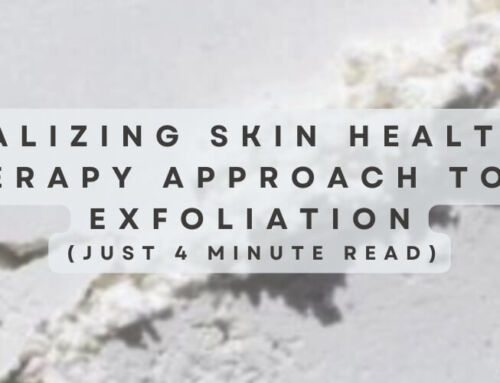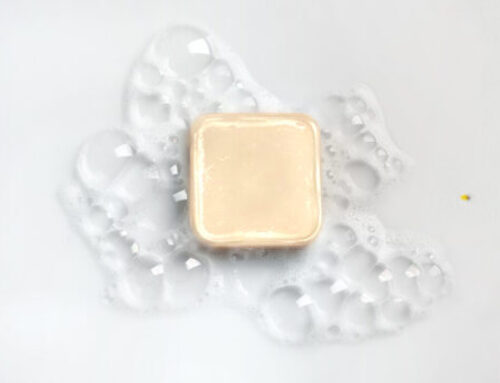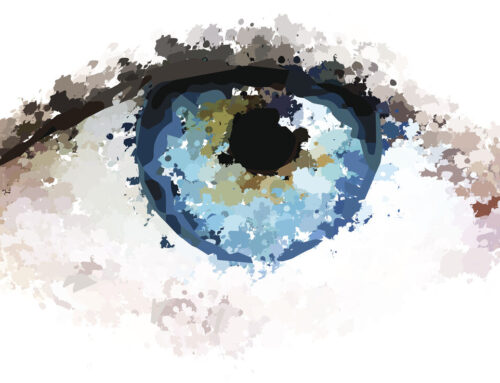Rosacea Sufferers: Enter at Your Own Risk
Bacteria, probiotics, microbiome—oh my! The microbiome is having a moment in the skincare spotlight, perhaps due to the fact that recent research found that it’s associated with a number of systemic diseases and skin conditions, including rosacea. Let’s take a look at the skin microbiome and its relation to a healthy, glowing complexion.
What is the Microbiome?
Did you know there is a community of different species of fungi, bacteria, and mites that are hanging out on your skin? That’s your microbiome. Don’t start feeling too unclean just yet—these microorganisms, sometimes called skin flora, aren’t only harmless, they’re actually beneficial to the health of your skin.
They sort of act like the front lines of the cavalry, defending your skin from bad bacteria. See, normal bacteria doesn’t like the acidic environment which is your skin. But your microbiome? They thrive on that acidic pH of yours. They play a vital role by helping produce vitamins, hormones, and chemicals that affect your mood, metabolism, immune system and the appearance of your skin!
Microbiome & …Mites?
Arguably the most fascinating—albeit, itch-inducing—of the microflora are the Demodex mites. Discovered in 1841 by two scientists, and soon after described by Gustav Simon, a German dermatologist, these benign mites “eat, crawl and mate on your face without harmful effects,” describes Ed Yong in his paper for Discover Magazine. “They could help us by eating bacteria or other microbes in the follicles, although there’s little evidence for this,” he adds. Yikes!
Now while most can simply store this information (somewhere far, far away), dermatologists have found that Demodex is more common in the cheeks of people with rosacea and could actually be causing those blushing flare-ups.

Demodex mites, Courtesy of Eye of Scient /SPL
Rosacea and … Too Many Mites?
Rosacea is a common skin condition characterized by flushing in the cheeks, permanent redness, visible blood vessels and, in some, small red bumps. It usually affects people between the ages of 30 and 50 and those with fair skin. It’s also three times more common in women than in men. But no matter what, symptoms and causes vary person by person–which is why a tailored approach to skin therapy is always key.
The exact cause of rosacea is unknown. Possible factors responsible for the cheeky condition may include auto-immune dysregulation, external factors (more on this below), and well, the Demodex mites.
However, it hasn’t been fully proven whether these bountiful microorganisms trigger rosacea or rosacea changes the environment of the skin which results in a surplus of these bad boys. In other worse: What was triggered first, the chicken or the egg?
Exploring this further, it’s been noted that rosacea improves with antibacterial drugs that don’t affect the mites. Many believe this is because rosacea is actually triggered by bacteria in the mites’ feces! Demodex doesn’t have a bum–and therefore, explodes once its very short lifespan is over, disposing of the bacteria onto the complexion. More mites = more chances to trigger this inflammation. Double yikes.
Healthy Microbiome = Healthy Skin
The relationship between your skin’s appearance and the microbiome isn’t completely clear. That’s partially because not all of the skin flora have been studied yet–as we can see with this new(ish) discovery of Demodex.
What we do know is that your skin’s microbiome can be damaged or thrown off balance by a number of ways: soaps, harsh skin care products, an inflammatory diet, you name it. It’s due to the fact that the thriving colonies survive on salt, water and oil (sebum) of your skin. They’re affected by a few of your habits such as body temperature, as mentioned–your skin’s pH, and skin thickness.
We also know that products that contain emulsifiers, fragrance, dyes, silicones, and preservatives can worsen rosacea symptoms. That’s why a skincare regimen that respects both the skin’s natural microbiome and skin barrier is the key to treating rosacea.
Dermaviduals skin care range corrects the skin by taking into account an individual’s needs while using proprietary customization and blending of bio-identical moisturizers, gels and anti-inflammatory serums to treat rosacea. This bespoke blend helps fortify and strengthen the barrier system leading to a reduction in symptoms!
If you own a spa or skin care clinic in New York, here are our top picks for treating rosacea:
- EGCG Liposomes: A multifunctional barrier repairer, dermaviduals’ newest product improves and soothes skin conditions from atopic dermatitis to rosacea.
- Liposome Concentrate Plus, for intensive care of blemished and rosacea-prone skin.
- Hamamelis Extract, for its anti-inflammatory, mildly astringent and stimulating effects.
Call 1-888-753-2231 or email the dermaviduals team to get these exclusive rosacea-busting products in your space!






